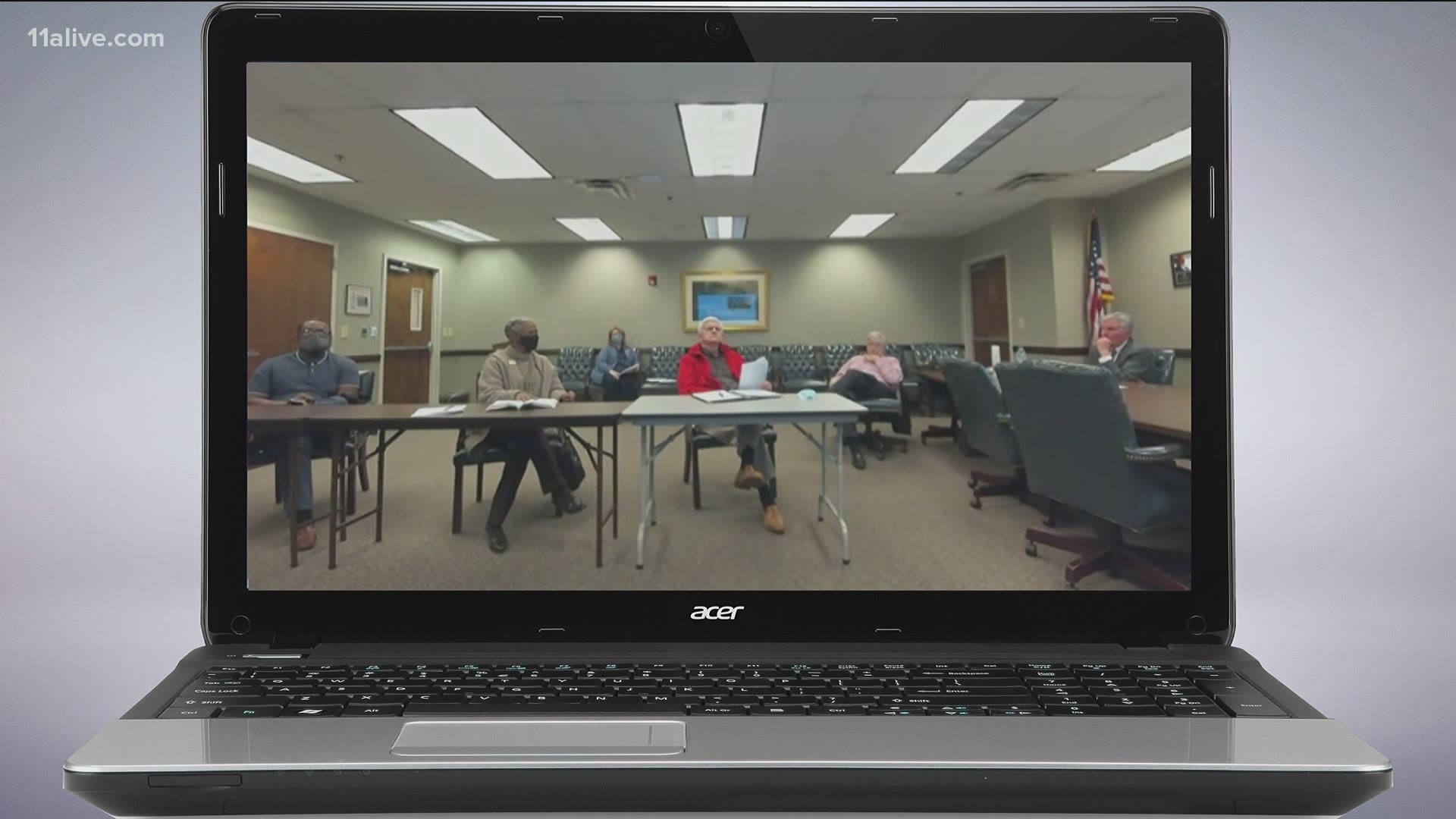COBB COUNTY, Ga. — At least two of the challenges that were lodged against the eligibility of tens of thousands of registered Cobb County voters this week were submitted through a Texas-based organization.
Copies of the challenges show that the two brought by Marietta attorney Pamela Reardon were sent to Cobb County's elections director through an email account set up by Houston-based True The Vote. That organization has said it is partnering with individual voters in every Georgia county to challenge the eligibility of more than 364,000 voters ahead of the Jan. 5 Senate runoffs.
In a special meeting yesterday of the Cobb County Board of Elections & Registration, the challenges were denied a full hearing.
The challenges were based on databases voters who had indicated they were in another state through National Change of Address records.
County attorneys told the board they did not feel the databases themselves were sufficient for a full hearing. They noted that federal law prohibits significant voter list alteration in the 90 days before an election, and said there were a number of reasons why someone could be in another state receiving their mail, including for temporary work or caring for a loved one through the pandemic.
"The mere production of a voter registration database compared with a national change of address registry is not sufficient," one county attorney said.
The board voted unanimously, 4-0, not to have a full hearing for the challenges. A third challenge, brought by Cobb County Republican Party Chairman Jason Shepherd, was sent on his own letterhead.
11Alive's Brendan Keefe noted that the databases brought forth in the challenges contained some addresses close to military facilities.
Individual challenges to individual voters are permitted under §21-2-230(a) of the Georgia Code. The law stipulates that:
- If a person removes to another state with the intention of making it such person's residence, such person shall be considered to have lost such person's residence in this state
- If a person removes to another state with the intention of remaining there an indefinite time and making such state such person's place of residence, such person shall be considered to have lost such person's residence in this state, notwithstanding that such person may intend to return at some indefinite future period.
This statute allows for exceptions for schooling and government service reasons.
Catherine Engelbrecht, the founder of True The Vote, has called the organized effort an "historic challenge marks the beginning of the great awakening of American voters to serve our democracy by getting involved in the process."
Sections 21-2-230 (c) and 21-2-230 (e) of the law lay out some recourse for a challenged voter:
- If the challenged elector appears at the polling place to vote, such elector shall be given the opportunity to appear before the registrars and answer the grounds of the challenge.
- If the challenged elector cast an absentee ballot and it is not practical to conduct a hearing prior to the close of the polls and the challenge is based upon grounds other than the qualifications of the elector to remain on the list of electors, the absentee ballot shall be treated as a challenged ballot pursuant to subsection (e) of Code Section 21-2-386. No further action by the registrars shall be required.
The law appears to stipulate that any challenge to an in-person voter must be made before that person has voted. But those who have already voted by absentee ballot would be open to challenge, under the law, until 5 p.m. on Jan. 4, in the case of the Jan. 5 runoffs.
It's not clear if any of the individuals listed in the databases have already voted.
Sec. of State Brad Raffensperger, in a statement on the True The Vote website, said "the Elector Challenge is a vehicle under our law to ensure voter integrity" and that "I support any effort that builds faith in our election system that follows the proper legal procedure."

